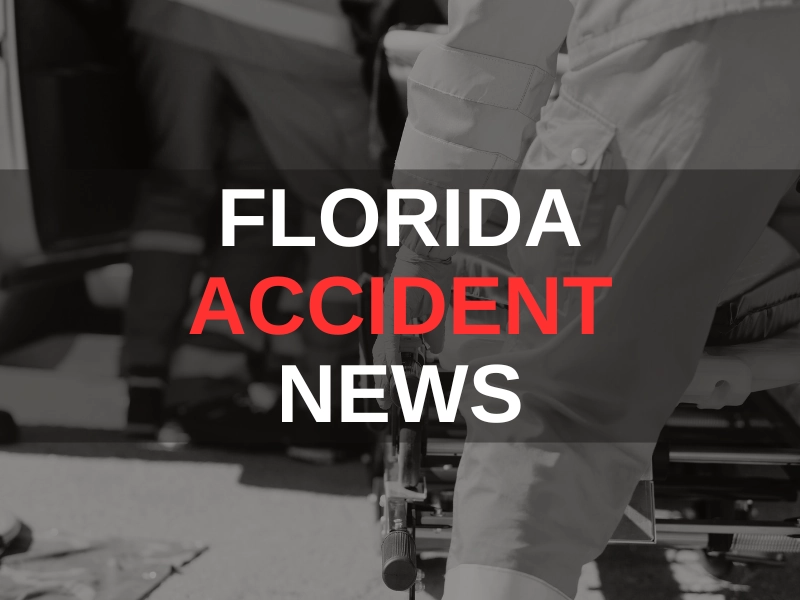St. Petersburg, FL – Lightning Injuries at Resorts: Can You Sue for Negligence?
9Jul
St. Petersburg, FL (July 8th, 2025) – A family of three, two adults and a 17-year-old, were struck by lightning while sheltering under a beach umbrella on St. Pete Beach near Dolphin Beach Resort. The adults were treated on the scene, and the teen was taken to Tampa General Hospital. Her condition has not been reported.

Lightning may seem like a rare danger, but it strikes more than 40 million times each year in the U.S. alone. Beach resorts, outdoor recreation areas, and coastal vacation spots are particularly vulnerable, especially in the summer months, when tourist activity spikes and storms roll in quickly. When someone is struck by lightning at a beach, on a golf course, or near a resort pool, the results can be catastrophic.
Table of Contents
Understanding Lightning Strike Risks at Resorts and Beaches
Lightning can be deadly, and beachside environments present a unique combination of risk factors. Wide open spaces, crowds, and fast-moving weather systems mean that danger can escalate quickly, and many victims don’t realize the threat until it’s too late.
Why Coastal Resorts and Beaches Are High-Risk Areas
Open coastlines, saltwater pools, sandy walkways, and minimal shelter all create conditions that increase the likelihood of lightning strikes. Add thousands of tourists and you have a perfect storm.
The Role of Summer Weather and Pop-Up Storms
Storms can appear with little warning, especially in coastal states like Florida. Fast-developing thunderclouds and limited visibility make it hard for beach-goers to judge the danger, even as lightning moves closer.
Resort and Beach Liability for Lightning Injuries
When a lightning strike happens at a beach or resort, the question becomes: could it have been prevented? Property owners and operators must take reasonable steps to warn, evacuate, and protect guests. If they fail to do so, they may be liable for resulting injuries.
Duty to Protect Guests from Foreseeable Hazards
Resort owners, municipalities, and beach managers all owe a duty of care to the public. When storms are forecasted, this includes anticipating lightning risk and responding appropriately.
Examples of Negligence in Lightning Strike Cases
Legal claims often stem from preventable actions, or inaction. Ignoring weather alerts, waiting too long to evacuate, or failing to train staff can all lead to legal exposure.
What Are Lifeguards Legally Required to Do?
Lifeguards are often the first line of defense when lightning threatens public safety. Their responsibilities go beyond the waterline. And, when protocols break down, serious injuries can result.
Lifeguard Responsibilities Go Beyond Water Safety
Trained lifeguards are expected to monitor weather conditions and act quickly when danger is present. This includes sounding alarms, removing swimmers from the water, and ensuring people get to safety.
Delayed Response Time Can Lead to Lawsuits
Timing is everything in lightning incidents. If a lifeguard fails to act, or if their employer failed to train them properly, any resulting injuries could lead to liability claims against the resort or city.
Common Lightning Strike Injuries
Lightning strikes aren’t just rare flukes, they’re medical emergencies that often lead to long-term complications. Victims may face months or years of recovery, depending on how and where the strike occurred.
Types of Injuries Lightning Can Cause
While not always fatal, lightning strikes can cause immediate and severe trauma. Victims may suffer cardiac arrest, neurological damage, and deep internal burns. No updates have been released regarding the condition of the teen injured on St. Pete Beach. She was transported as a trauma alert.
Lasting Physical and Psychological Effects
Even survivors may deal with long-term issues like nerve damage, chronic pain, memory loss, and emotional trauma. These outcomes often justify significant compensation in injury lawsuits.
Who Can Be Held Liable for Lightning-Related Injuries?
Determining liability depends on the type of property and who was responsible for enforcing safety protocols. In many cases, multiple parties may share legal responsibility. A Clearwater personal injury lawyer may help identify which parties bear liability, including:
Resort Owners and Management Companies
If the incident occurred at a hotel, private beach, or resort-operated pool, the property owner may be liable for failing to provide shelter, warnings, or adequate staffing.
Municipalities and Public Beach Authorities
Public beaches come with their own obligations. If lifeguards or beach personnel are employed by a city or county, those entities may face legal action if they fail to respond to weather threats.
Independent Contractors or Security Companies
Many resorts outsource lifeguard duties or security. If the staff was not properly trained or failed to act, the contracted company may also be brought into a personal injury claim.
Proving Negligence in a Lightning Injury Case
A successful lightning injury claim relies on evidence. Victims must show that the responsible parties knew, or should have known, about the danger and failed to take appropriate action.
What Needs to Be Proven in Court
The legal elements of a negligence claim include: duty of care, breach of that duty, causation, and damages. All four must be present for a lawsuit to move forward.
Gathering Evidence to Support Your Claim
Key forms of evidence include emergency dispatch logs, security footage, weather alerts, eyewitness testimony, and maintenance or staffing records. An experienced attorney can help gather and preserve these materials.
Legal Help for Lightning Injury Victims
Lightning injuries can cause sudden, life-altering harm. When resorts, lifeguards, or public agencies fail to act responsibly during a storm, they may be held accountable.
If you or your loved one was injured by lightning at a beach or resort, don’t try to navigate the legal process alone. A Clearwater premises liability lawyer can help determine whether negligence played a role, and pursue fair compensation for your losses.
Light & Wyatt Law Group helps individuals and families recover after serious injuries at Florida’s beaches, resorts, and recreational areas. We’re based in St. Petersburg, Florida, and we represent clients throughout the Gulf Coast and beyond.
To discuss your case and learn your legal options, call 727-499-9900. We offer free initial consultations.
